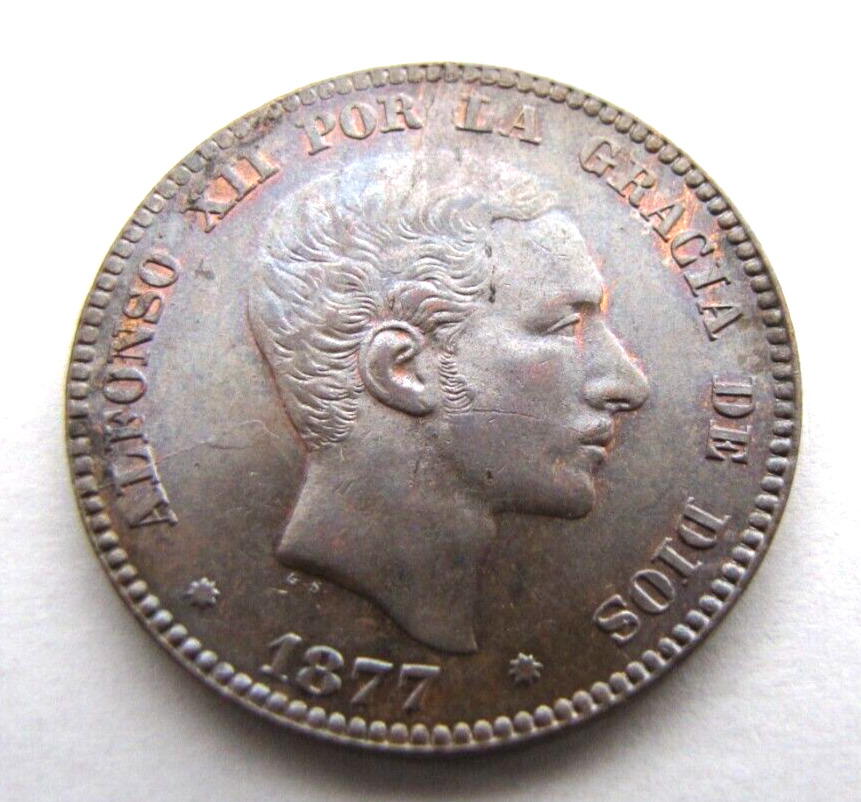-40%
!!! Rare coin gold 10 pesetas 1878 Spain
$ 106.65
- Description
- Size Guide
Description
!!! Rare coin gold 10 pesetas 1878 SpainRare coin gold 10 pesetas 1878 Spain
Spanish Royal Mint (Fábrica Nacional de Moneda y Timbre, FNMT-RCM)
The
OFFICIAL RESTRIKES
of the Royal Mint is Madrid.
Country Spain
Nominal value of 10 pesetas
The years of coinage 1962
Type Regular issue
Diameter 19 mm
Weight 3,23 g
Material Gold 0.900
Circle Shape
Coin Orientation (180°)
Type of edge Pattern
The period of King Alfonso XII (1875-1885)
Ruler Alfonso XII
Krause KM Number #677
The author of Both sides is Gregorio Sellan, sign: G. S.
Circulation of UNC - 142 360 pcs.
Avers:
ALFONSO XII POR LA G DE DIOS
Rebers:
10 PESETAS
/
M
/
REY CONSTL. DE ESPAÑA
Alfonso XII (Spanish: Alfonso XII, 28 November 1857-25 November 1885) was the King of Spain since 1874. The only son of Isabella II; who was his father is not exactly known (according to some sources, Isabella's husband, Infante Francisco de Asis, Duke of Cadiz, was a homosexual and neglected his wife). After the deposition of his mother in 1868, he left the country with her, studied in Vienna and Paris. On June 25, 1870, Isabella abdicated her rights to the throne in his favor. In the conditions of the political crisis (the interregnum, the unstable rule of Amadeus of Savoy, the proclamation of the First Republic and the second Carlist War), the Bourbon restoration proved to be an effective means of pacifying civil unrest.
Alphonse adopted the dynastic number XII (there were no kings of united Spain with this name yet, and the last Castilian king wore the number XI). He was married twice: from 1878 to his cousin Maria de las Mercedes de Montpensier, the paternal granddaughter of Louis-Philippe I, who died after six months of marriage, and from 1879 to Maria Christina of Austria. From the second marriage during the life of the king, two daughters were born — Maria de las Mercedes (1880-1904) and Maria Teresa (1882-1912).
The young king died of tuberculosis on November 25, 1885, three days before his 28th birthday, while the queen was pregnant with her third child. Since the succession to the crown depended on the sex of this child (if a third girl had been born, the throne would have passed to the eldest), a regency was established before the birth. On May 17, 1886, a son was born — Alphonse XIII.















